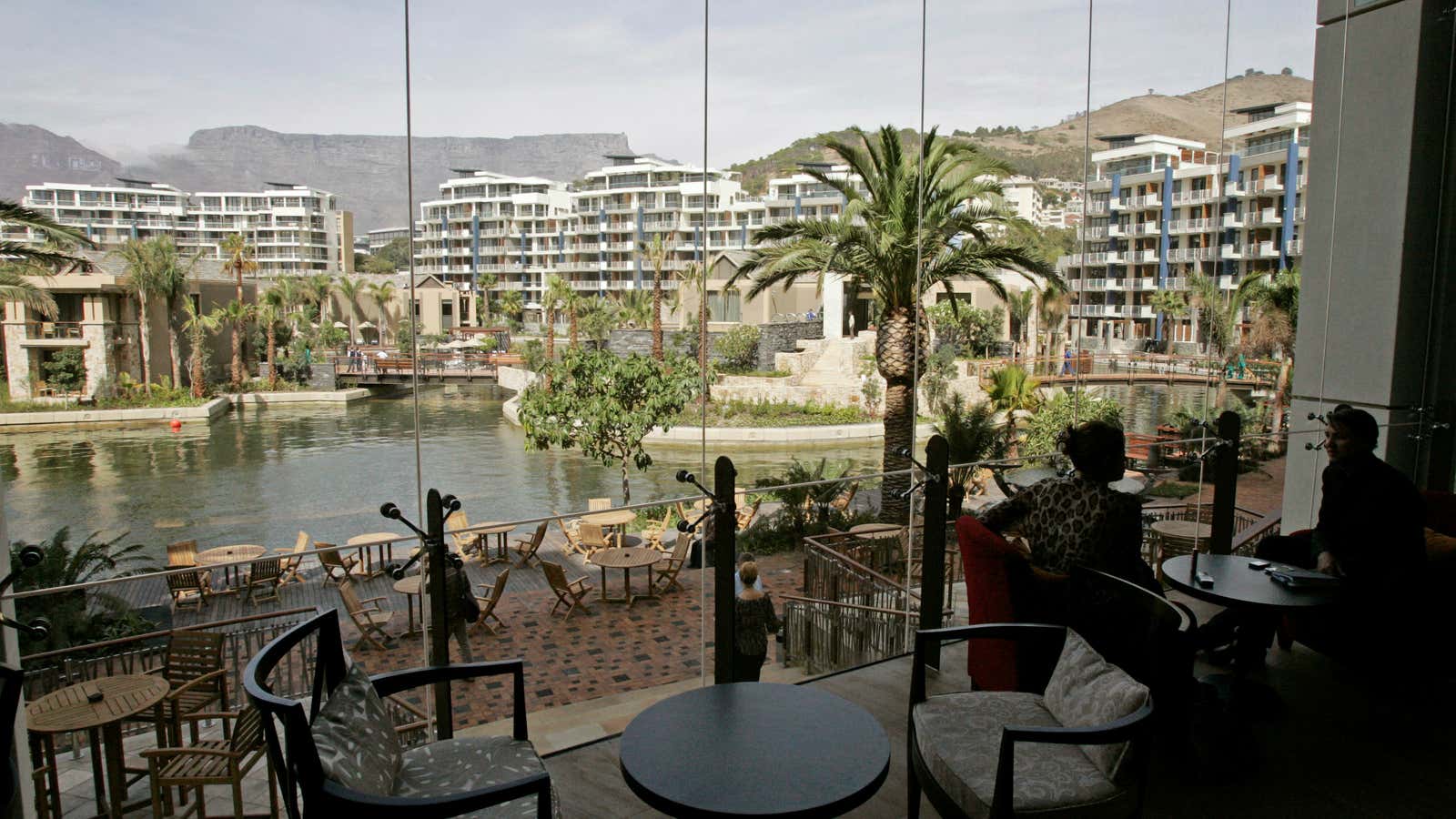Africa is not a country, but here’s what it would look like if it were a bar:
South Africa would insist she’s too good for the place, Zimbabwe and Burundi would stay too late, China would stuff his pockets from all the alcohol sales, and the VIP section would be filled with foreigners instead of Africans.
The hashtag #IfAfricaWasABar started trending earlier this week, as people across the continent took to Twitter with diverse—and often funny—characterizations of African countries. Alone, the storm of tweets offers some comic moments and fleeting political commentary. But #IfAfricaWasABar is just the latest in a series of organic social-media driven efforts with a much larger ambition: diversify the African narrative.
“For a long time the narrative was dominated by the West, so Africans were seeing themselves as the West reflected them,” says Brenda Wambui (@brendawambui), editor of popular Kenyan blog Brainstorm (http://www.brainstorm.co.ke/). “When the Internet came, when Twitter came, it became a town hall of sorts. People were able to tell whatever they wanted to tell, they could determine a narrative for themselves.”
#IfAfricaWasABar began with a simple question tweeted by writer Siyanda Mohutsiwa from Botswana: “If Africa was a bar, what would you’re country be drinking/doing?
“I thought it would be a fun way for Africans to laugh at themselves and each other by putting geopolitics in comedic light,” she says.
Yet this social media movement isn’t just broadening the African narrative—it’s also calling out international media when outlets publish sweeping generalizations about the continent when it comes to the usual tropes around conflict, disease and poverty.
Last week, #SomeoneTellCNN took over Kenyans’ Twitter pages once more after a CNN broadcaster referred to Kenya as a “terror hotbed” when discussing security concerns surrounding President Obama’s recent trip to the country. It was tweeted over 120,000 times on its first day according to the BBC and a government minister even asked for an apology.
It wasn’t the first time the hashtag was used. Three years ago, Kenyans on Twitter (#KoT) took to the platform with the hashtag #SomeoneTellCNN when the broadcaster used the headline “Violence in Kenya” during a segment on a bus station bombing in the country. A year later, the hashtag started trending again when CNN published a report titled “Kenyans armed and ready to vote” in which the network alleged Kenyans were preparing to use violence in the country’s general elections. CNN was forced to change one its headlines.
“It creates a situation where there is a greater sense of accountability, it enables us to hold media houses accountable directly,” says Wambui. “You can’t just publish things that are unverified without people pushing back.”
Social media is also being used to re-shape the narrative the media creates. The Instagram account for @EverydayAfrica, a project collecting cell phone photos of ordinary life across the continent, has earned over 158,000 followers in just three years. Last month the hashtag #TheAfricaTheMediaNeverShowsYou popularized the effort to diversify images of Africa further, collecting over 45,000 tweets with photos from the continent’s fashion industry, pristine beaches, ancient mosques, and modern hospitals—the types of images of Africa rarely seen in the dominant global media.
While most of the hashtags have used in a fun way, some more pointed ones have raised important social issues. One good example was #BeingFemaleInNigeria in late June. The hashtag started by a few friends, highlighted the day-to-day casual, and insidious, sexism that women face everyday in Nigeria. The topic struck a nerve and trended on the continent beyond Nigeria.
